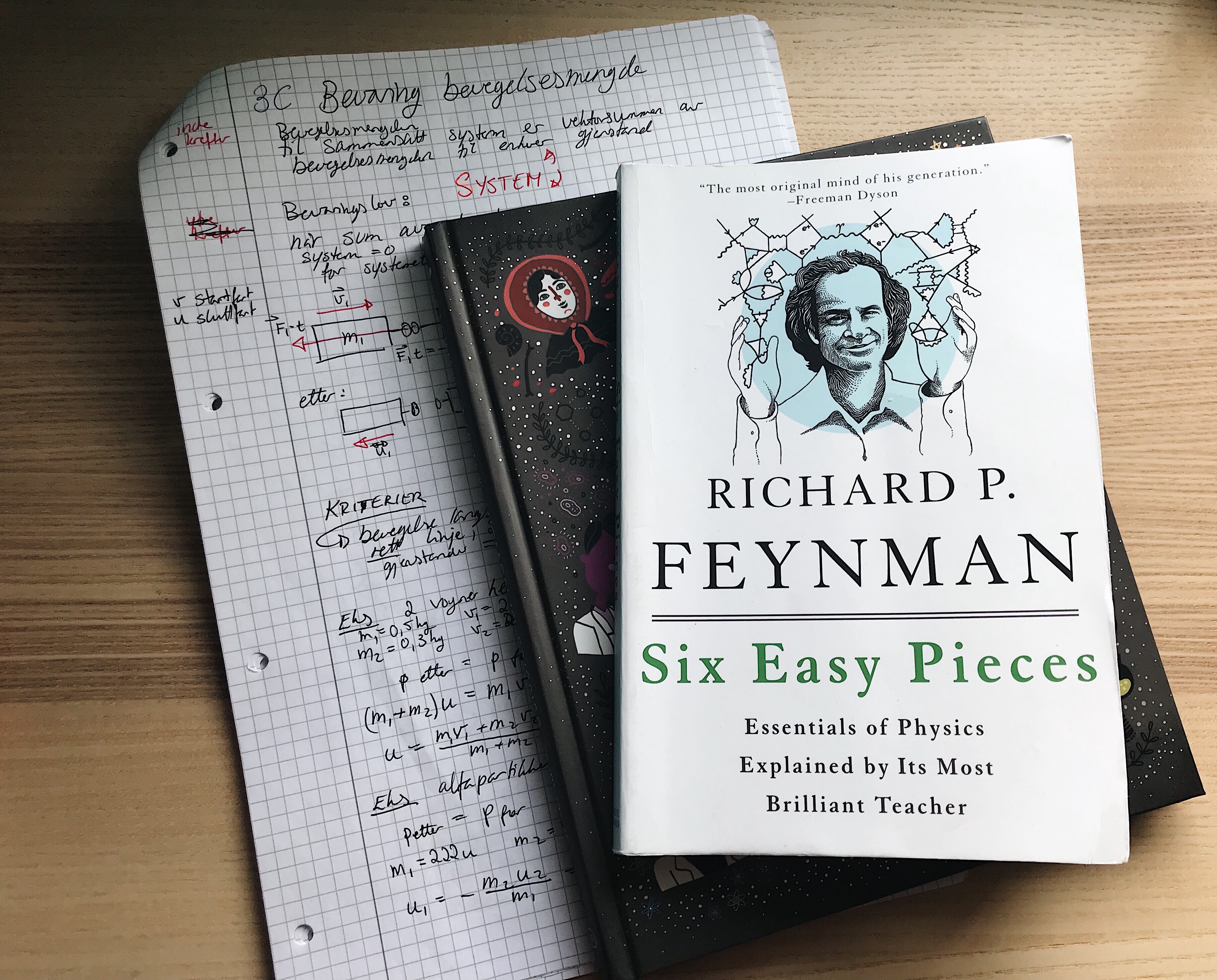Genre: physics, nonfiction
Pages: 140

About the book
Richard Feynman is a well-known physicist, he was awarded the Nobel Prize of physics in 1965 for his developments to the quantum field theory. This book isn’t lying when it claims he’s one of the most brilliant physics teachers as well, particularly well-known for this introduction series of lectures from Caltech university in 1964, that this book is based on.
My thoughts
Rating out of five: four

My background going into this book: one and a half year into physics classes. I read this book a while ago and just now decided to post the review, the day after I sent my application for a physics bachelor at university!
The only reason this isn’t getting five stars are that the lectures are older. This book was first released in 1994, it’s an abbreviated form of the 1964 Feynman Lectures, which has been edited later. I just feel as an introduction this should have more side-notes on later development (just a couple words) and where to find more information on them, because it’s meant as an introduction.
The way Feynman talks about physics de-mystifies it, and makes it accessible. As someone who is going into physics, I’ve already learnt to love formulas. They say so much in so few sentences! It’s like abreviations, but you got to have an understanding of what they mean. Feynman is so aware of this, and instead put physics concepts into words, very elegantly. I really do get why he’s so looked up to. He’s up there with Stephen Hawking, in the quality of his writing. I’ve read parts of Einstein’s biography, and while he was a incredible scientist, his lectures were known from the beginning for jumping straight to the top-level difficult problems, leaving most of his students behind. I think Feynman explains really well concepts of physics, that we look at the universe and create certain rules or theories through observations and experiments that explain what we see. But also gets into more specifics, where my favourite parts were comparing physics to other science fields, the history of finding particles that everything in the world is made of, about the strangeness of fluid physics (especially turbulent fluids, Smarter Every Day made a great video about it that I’ll link to down below) and conservation of energy as a great intro to the concept of energy that everyone hears so much about, but usually don’t understand.
What I felt reading this book: not so weird for loving physics, and that more people would if this was the type of intro they got
8 thoughts on “Six Easy Pieces by Richard Feynman | Book Review”